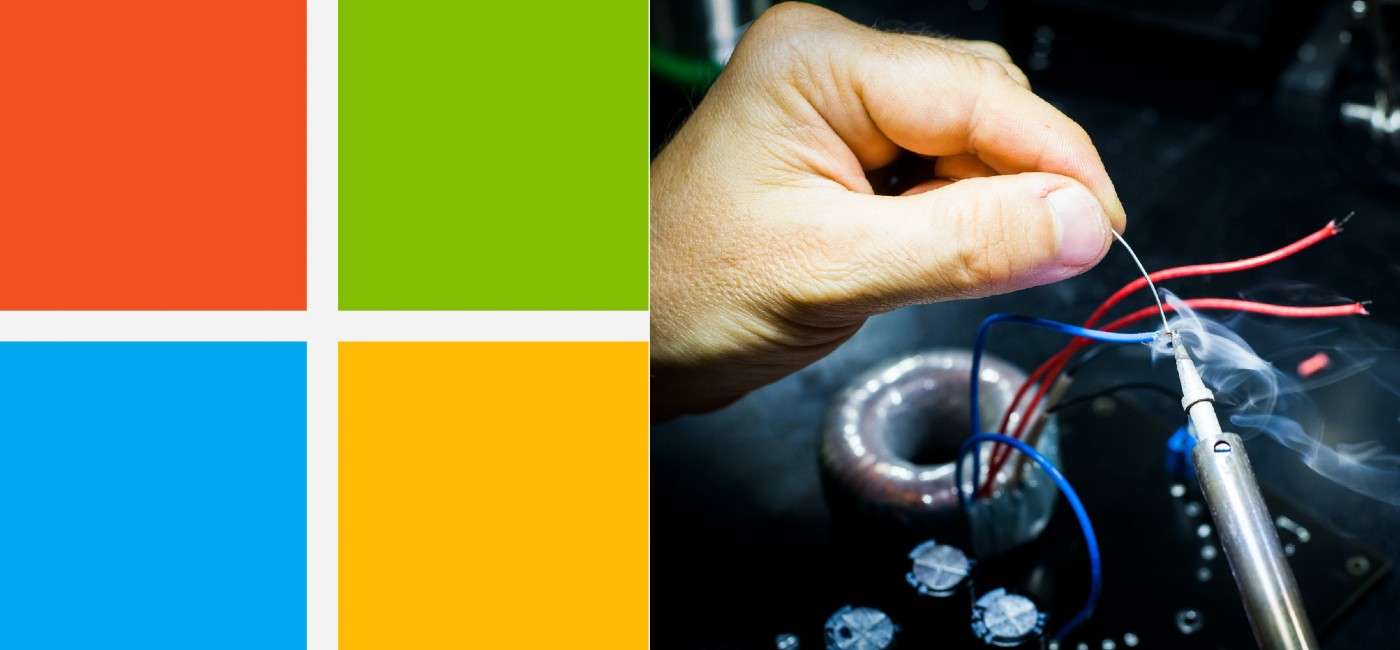Startup Rethinks Self-Storage: Using Abandoned Offices and Restaurants to Store Your 'Stuf'
A startup called "Stuf" looks for storage for your stuff in abandoned office spaces, garages, and empty basements in major cities.

Microsoft has agreed to take long hard look at reforming their spare parts and technical support branches to make it more easy for their customers to repair Microsoft products at home.
The move is being described as a "first of its kind victory," as Microsoft becomes the only major company to bow to the whims of a shareholder resolution regarding the "right-to-repair," a consumer-driven movement in reaction to many products, from cars to coffee makers, gradually becoming less-accessible to at-home repairs.
Lodged by the non-profit organization As You Sow, the shareholder resolution stated: "Microsoft is a corporate leader in pledging to take substantial action to reduce climate emissions; yet our Company actively restricts consumer access to device reparability, undermining our sustainability commitments by failing to recognize a fundamental principal of electronics sustainability: that overall device environmental impact is principally determined by the length of its useful lifetime."
Consumer electronic waste is contributing an enormous amount of non-recyclable material into landfills, and a principal driver of that can be summed up by the image of your dad pulling up the hood on a car made in the '90s, compared to the image of the engine block on your own car today: a hand holding a wrench could reach any component in the former, while in the latter almost nothing can be accessed.
Companies like Apple pioneered telecommunication products that by design were nearly impossible to maintain or repair alone, and Microsoft is largely onboard with that production angle.
Research has shown that most of the emissions associated with the life-cycle of something like a smartphone comes during the production.
E-Waste Monitor finds that expensive or unaccommodating repair processes, short life-cycles, and lower prices, incentivize consumers to save precious time by simply buying a replacement rather than repairing existing items.
After getting the shareholders on board, As You Sow got Microsoft to pledge to hire an independent investigation to study the effects of its restrictive repair policy on e-waste and sustainability, and to make new parts and documentation available beyond its authorized repair network by the end of 2022, in alignment with the report's findings.
Microsoft responded to a request for comment by Grist, who reported on the resolution, saying "As You Sow asked us to investigate the connections between our sustainability commitments and device reparability. It was a productive discussion, and we have agreed to undertake that important study, the results of which will be used to guide our product design and plans for expanding device repair options for our customers."
The move is being described as a "first of its kind victory," as Microsoft becomes the only major company to bow to the whims of a shareholder resolution regarding the "right-to-repair," a consumer-driven movement in reaction to many products, from cars to coffee makers, gradually becoming less-accessible to at-home repairs.
Lodged by the non-profit organization As You Sow, the shareholder resolution stated: "Microsoft is a corporate leader in pledging to take substantial action to reduce climate emissions; yet our Company actively restricts consumer access to device reparability, undermining our sustainability commitments by failing to recognize a fundamental principal of electronics sustainability: that overall device environmental impact is principally determined by the length of its useful lifetime."
Consumer electronic waste is contributing an enormous amount of non-recyclable material into landfills, and a principal driver of that can be summed up by the image of your dad pulling up the hood on a car made in the '90s, compared to the image of the engine block on your own car today: a hand holding a wrench could reach any component in the former, while in the latter almost nothing can be accessed.
Companies like Apple pioneered telecommunication products that by design were nearly impossible to maintain or repair alone, and Microsoft is largely onboard with that production angle.
Research has shown that most of the emissions associated with the life-cycle of something like a smartphone comes during the production.
E-Waste Monitor finds that expensive or unaccommodating repair processes, short life-cycles, and lower prices, incentivize consumers to save precious time by simply buying a replacement rather than repairing existing items.
After getting the shareholders on board, As You Sow got Microsoft to pledge to hire an independent investigation to study the effects of its restrictive repair policy on e-waste and sustainability, and to make new parts and documentation available beyond its authorized repair network by the end of 2022, in alignment with the report's findings.
Microsoft responded to a request for comment by Grist, who reported on the resolution, saying "As You Sow asked us to investigate the connections between our sustainability commitments and device reparability. It was a productive discussion, and we have agreed to undertake that important study, the results of which will be used to guide our product design and plans for expanding device repair options for our customers."
There's a lot more than just preventing e-waste and emissions inherent in the right-to-repair, it allows young consumers to build life or trade skills and gives them a sense of responsibility. It can help low-income earners save money, and it allows for knowledgeable consumers to customize or alter products to suit their needs.
SHARE This Hopeful ‘Right to Repair' News With Your Pals…
Be the first to comment